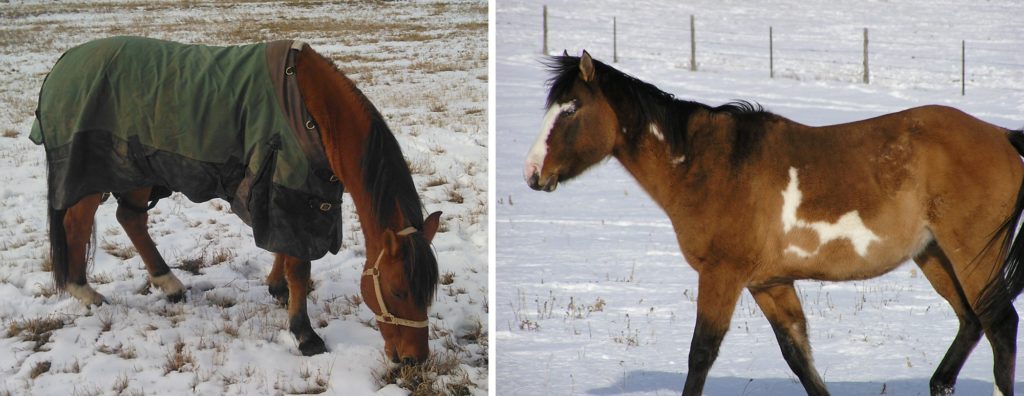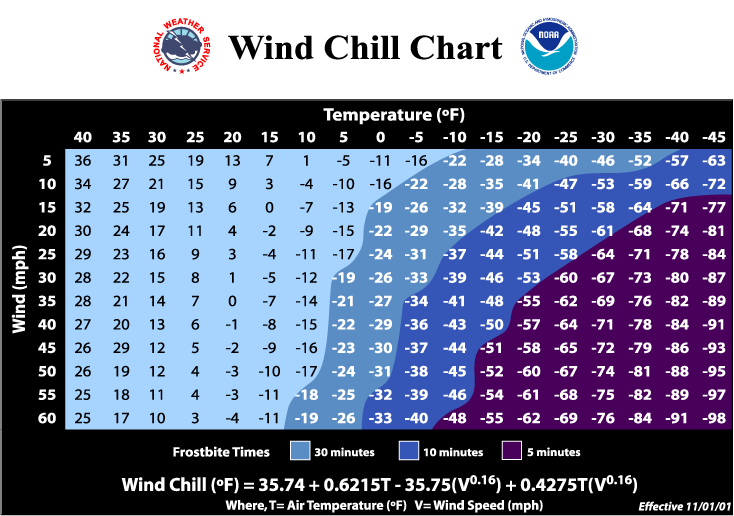Winter Blanketing

Blanket or no blanket? While blankets have some practical application, they are unnecessary for most well-conditioned, healthy horses due to their anatomical make-up. In some cases, blankets can cause overheating and make horses uncomfortable.
As the winter months set in, many horse owners have the question: is my horse warm enough? Do I need to blanket my horse? Understanding anatomy and physiology can help horse owners understand when a horse may or may not need a blanket. Some horse owners unwisely use the rule that when they feel cold, they should put a blanket on the horse. This can be problematic. Horses are not the same as humans. The anatomy of the horse is a miraculous design that allows horses to adapt to changes in the weather.
Horses grow a thick winter coat to prepare for the colder months. In early fall, horses begin to grow longer hair and a denser coat. This provides an outer insulation for the body. Inside the horse’s body, circulation that is closest to the skin may be diverted away from the superficial surface. Blood circulates through the body via arteries and veins. Between arteries and veins, horses have a unique arrangement of shunts called arteriovenous anastomoses (AVAs).
AVAs allow the horse to temporarily divert or shunt blood away from the capillary bed in the layer just under the skin and back to the interior of the body and heart. This preserves body warmth and allows the horse to regulate its temperature in adverse climate conditions. This is why horses may be seen in the winter with layers of snow on their backs (creating another layer of insulation). Body heat does not melt the snow because the blood is being circulated deeper inside the body. Periodically, the blood is allowed to circulate to the superficial layers to prevent tissue death (Butler, Principles of Horseshoeing, P3, pp 621; Pollitt, Color Atlas of the Horse’s Foot).
Fat is also a convenient insulator. Most pastured horses gain weight in the summer time. The extra fat helps keep horses warm in the winter. In addition, horses generate warmth as they chew and digest hay. For this reason, many horse owners opt to put out a large round bale of lower-quality grass hay for horses to munch on. It is important to not leave rich feeds in large quantities in front of horses because of the risk of laminitis and founder.
This is not to say that horse blankets are completely uncalled for. Horses have many anatomical features that prepare and protect them from the cold, but some situations call for more protection. Skinny horses and older horses may benefit greatly from a blanket in the cold winter months as they do not have extra fat for insulation. In the October 2018 issue of Equus magazine, Dr. David Trachtenberg, DVM from New York recommends also that, “horses with poor dental health may need a blanket because they are unable to properly chew and digest hay for warmth.” He also notes that lame horses will not generate as much heat as sound horses because they don’t move around as much. These horses might also benefit from a blanket.
Horse blankets come in different thicknesses. Some horses may only need a medium blanket as opposed to a heavy blanket. If a well-conditioned, healthy horse has a thick blanket on, there is a risk of overheating. Horse owners should remove the blanket at least once a day to inspect the horse. Leaving a blanket on for long periods of time might cause sores and create an environment for bacterial or fungal infections.
One of the best uses for horse blankets is for winter travel. Wind chill is a factor that horse owners should consider. As wind speed increases, the air temperature goes down. This is especially important to consider when hauling horses. On a cold day, the temperature in a trailer with ventilated sides can be much colder than you think. The National Weather Service provides a chart that will give you an idea of the difference air velocity makes on a cold day.
Most horses are naturally equipped to deal with cold weather. In fact, many horses that have access to a warm barn seem to prefer being outside in the snow instead! It is important that horse owners provide the necessities for horses, but they shouldn’t go overboard and over-coddle the horse as this can do more damage than good.
Related Posts
-
Foaling season is just around the corner. A question often a...Jan 22, 2013 / 0 comments
-
A young horse does not usually have to be shod unless itR...Nov 24, 2009 / 0 comments
-
Learning to learn applies to every phase of life. Recently I...Apr 29, 2010 / 0 comments
Blog Categories
- Anatomy
- Best Business Practices
- Conformation
- Current Events
- Customer Service
- Draft Horse Shoeing
- Equine Soundness
- Essential Anatomy Kit
- Farrier Careers
- Farrier training
- Foal soundness
- Horse Care
- Horse Foot Care
- Horse Owner Tips
- Horsemanship
- Horseshoeing
- Horseshoeing History
- Iron and Forge Work
- Student Spotlight
- Uncategorized
- Veterinary Care
Blog Archives
Contact Us
Butler Professional Horseshoeing School
495 Table Road
Crawford, NE 69339
(800) 728-3826
jacob@dougbutler.com
Subscribe to Our Blog
Get Our Free e-Book!
If you think you want to become a farrier (or know someone who does), this book can help you make that decision. Horse owners will learn the importance of choosing a qualified farrier and how to select the “right” one.
[ Get the e-Book Now! ]
- Follow:

